Traphaco participates in seminar on sustainable development of medicinal materials
On June 8th, a seminar entitled "Sustainable development of medical materials" was held in Hanoi by the Nhan Dan (People) Newspaper and the Ministry of Health, under the sponsorship of Traphaco JSC.
Attending the seminar were Mr. Thuan Huu, member of the Party Central Committee and the Chief Editor of the People Newspaper, Chairman of the Vietnam Journalists’ Association; Ms. Nguyen Thi Kim Tien, Minister of Health; officials of some provinces and representatives of research institutions and enterprises that cultivate and process medicinal plants.
At the seminar, participants discussed the situation of growing, harvesting, manufacturing, and trading medicinal plants and solutions and the improvement of policies for sustainable development of medicinal materials.
In his opening remarks, Mr. Thuan Huu said that at the 11th session of the 13th National Assembly, the amended Pharmaceutical Law was adopted by the National Assembly to replace the former law, which was issued in 2005.
The amended law, which will be effective from January 1st 2017, consists of a series of policies and measures to restore the position for medicinal plants, herbal medicine and traditional medicines of Vietnam.
Strengthening the management and development of medicinal materials is an urgent and long-term task of the pharmaceutical industry of Vietnam. The amended law has created the premise for the pharmaceutical industry to promote its role and position in the future.
To develop the pharmaceutical industry, Vietnam needs to better address many issues relating to mechanisms and policies; the development planning for medicinal plant areas; the pharmaceutical development plans; training and fostering of doctors and workers majored at traditional medicine; and the management of import and export of medicinal materials.
Prof. Dr. Pham Vu Khanh, Director of the Traditional Medicine Management Department of the Health Ministry, said, every year, the pharmaceutical industry of Vietnam uses about 60,000 tons of medicinal herbs of all kinds, of which about 80-85% are imported, mainly from China.
The biggest problems associated with imported materials are the source of origin, faked products or poor quality, Khanh said.
In 2012-2015, the Traditional Medicine Management Department in collaboration with the Inspectorate of the Ministry of Health, the Central Drug Testing Institute, and the Institute of Medicine ... tightened the inspection of quality of medicinal plants used at clinics throughout the country in order to address the above issues.
The seminar participants suggested many solutions for the sustainable development of and restoring the position for local medicinal plants. They emphasized the issuance of policies and mechanism to strengthen the pharmaceutical supply system and to apply modern sci-tech in developing herbal medicines; the encouragement of businesses and individuals to invest in pharmaceutical development; and the tightening of management and inspection of the quality of pharmaceuticals ...

Ms. Vu Thi Thuan, Chair of Traphaco JSC, said to develop Vietnam’s medicinal materials, the key issue is developing the the outlet for medicinal products and herbal medicines. This task must be performed by businesses.
According to Thuan, in recent years Traphaco has identified and pursued the policy of producing medicines from medicinal plants, with the motto "New technology and traditional identity."
Traphaco realizes that only the path of sustainable development can bring about long-term brand values and stable growth. Therefore the company chose the "green path of health" as its development strategy, which aims to developing the "green economy".
The company has been focusing on building and developing medicinal plant areas for a long time. However the turning point that make comprehensive breakthroughs for Traphaco was the project “green raw materials”, launched in 2009. Through this project, Traphaco has developed the model "four partners" to connect the State – Scientists - Businesses - Farmers, in which the farmers are the center.
This model helps Traphaco achieve its four strategic objectives of using the green materials, green technology to produce green products and green services.
Based on the development experience of Traphaco, Ms. Vu Thi Thuan said that to produce good medicine from medicinal plants, the circle and combination between the four above partners is the key.
Thuan said only coordination can create the general power to complete the task of care and protection of people's health in the new period and enhance local firms’ competitiveness on the international market. Each "partner" needs to join the circle in a positive and efficient way, to enhance their connection and sustainable development of Vietnamese medicinal plants.
She added that in that situation, the policies of the Party and State should be institutionalized in the direction of investing heavily in a national program with specific and synchronous actions and the close coordination between the health, agriculture and forestry, biological, pharmaceutical industries and provincial governments.
Other solutions include the establishment of organizations that are specialized in research on medicinal plants and herbal products; promoting the study of medicinal plants to have viable and efficient processes for the use of pharmaceutical enterprises; having incentives for enterprises, scientists and farmers to develop medicinal plant farming areas.
Thuan also suggested that the State should choose some capable enterprises to invest in and to pilot the model of “four partners” and assist pharmaceutical firms to set up large-scaled medicinal plant farming areas.
The scientists, the trade promotion agencies should be more active in seeking opportunities for local pharmaceutical enterprises to have access to new technology, new varieties of medicinal plants. Studies must be associated with the actual situation, with specific strategies. Scientists should actively cooperate with businesses and farmers to preserve and develop biological resources for medicine and to implement research projects into reality.
Farmers are advised to develop medicinal plant farming based on the need of the market and to ensure the quality of their products through proper investment in seeds, planting, harvesting, processing and maintenance techniques.
To better protect their rights and interests, farmers are also advised to link together in cooperatives to develop medicinal plant farming in large scale.
Medicine producers and traders must focus on research and application of scientific and technological achievements in medicine production to meet the good practice (GPs) standards, including the Good Agricultural and Collection Practices (GACP), to ensure good drug quality, and reduce product costs.

Minister of Health Nguyen Thi Kim Tien noted the comments and suggestions of participants and said that the Ministry of Health would try to deal with the above issues. She also said that in the plan on development of medicinal materials, many agencies proposed the Ministry to assume the task of developing medicinal plant farming.
Tien said after this seminar the Ministry of Health will organize conferences with the participation of entrepreneurs, scientists, farmers, and hospitals to collect opinions on the pharmaceutical development plan.
The Ministry of Health will coordinate with the People Newspaper to hold other seminars in order to find out the medicinal plant development models associated with the newly issued Pharmacy Law, Minister Tien said.

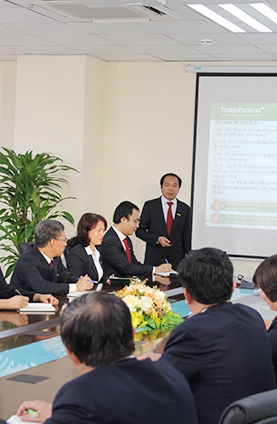
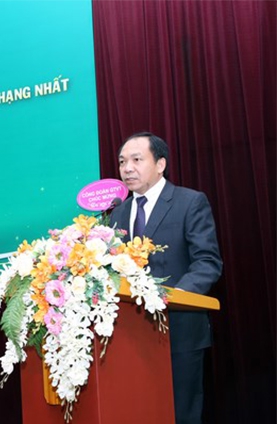
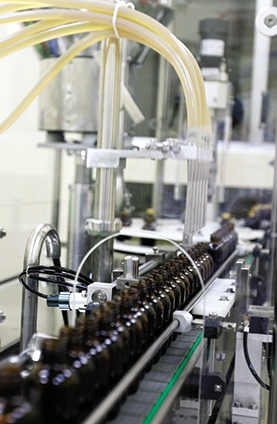
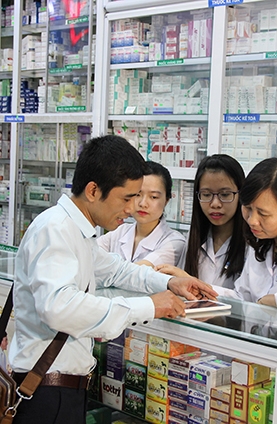
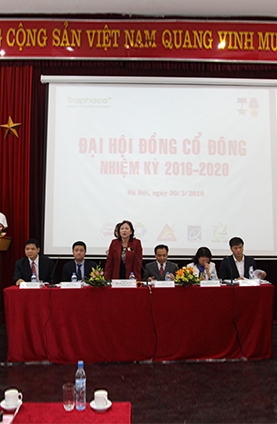
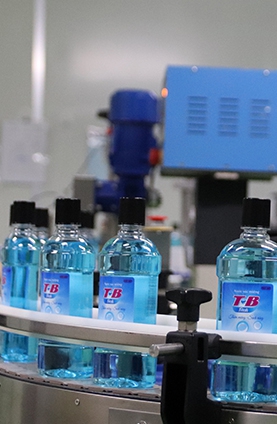
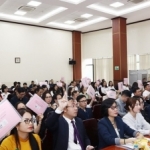



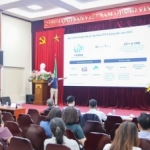
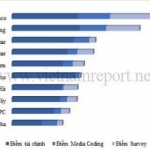
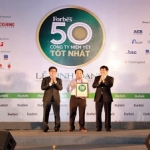

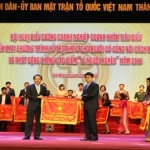
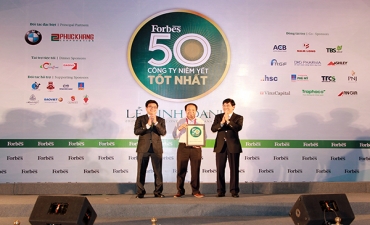
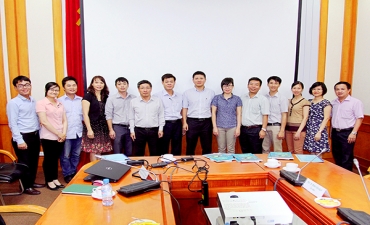
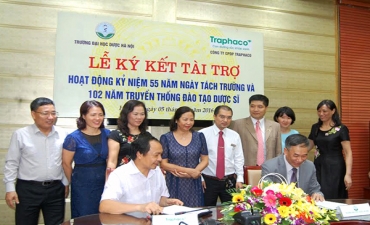
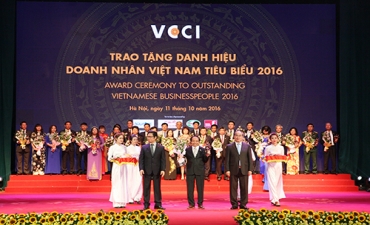
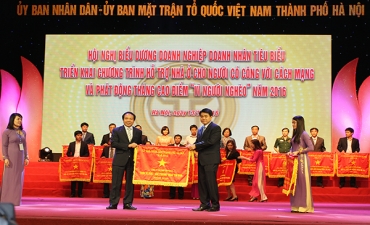

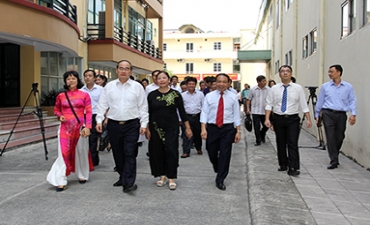
.jpg)
.jpg)




